Gastrointestinal Bleeding Causes and Treatment
Learn about gastrointestinal (GI) bleeding, its causes, symptoms, diagnosis, and effective medical treatment options.

Gastrointestinal (GI) Bleeding
Gastrointestinal (GI) bleeding is a potentially serious medical condition that involves bleeding from any part of the digestive tract — from the esophagus to the rectum. The bleeding may be visible (such as vomiting blood or passing black stools) or hidden, detectable only through tests. It can range from mild to life-threatening and requires immediate medical attention.
At VS Hospitals, patients with GI bleeding receive comprehensive evaluation and treatment from highly experienced gastroenterologists and surgeons. Using cutting-edge diagnostic tools and evidence-based medical protocols, the hospital focuses on identifying the source of bleeding quickly and providing the most effective care for long-term digestive health.

Early Detection Saves Lives
Early detection and treatment are crucial for improving the chances of survival. If you notice any concerning symptoms, consult a healthcare provider immediately.
Signs and Symptoms
Vomiting blood (hematemesis)
Bright red or coffee-ground-like vomit indicates upper GI bleeding.
Black or tarry stools (melena)
Caused by digested blood from the stomach or small intestine.
Bright red blood in stools
Suggests bleeding from the lower GI tract.
Abdominal pain or cramps
Common in peptic ulcers or inflammatory bowel diseases.
Fatigue and weakness
Resulting from blood loss and decreased oxygen levels.
Paleness or dizziness
Signs of anemia caused by chronic bleeding.
Shortness of breath
Especially in severe or ongoing blood loss.
Blood in Urine
Hematuria - pink, red, or dark urine, the most common symptom
Frequent Urination
Feeling the need to urinate frequently, even when bladder is not full
Painful Urination
Experiencing pain or burning sensation while urinating
Back or Pelvic Pain
Pain that occurs as the cancer grows and spreads
Unexplained Weight Loss
Significant weight loss not related to diet or exercise
Fatigue
Feeling unusually tired or weak without a clear cause
If you experience persistent vomiting, fainting, or passing blood in stools, immediate evaluation at VS Hospitals is critical to prevent shock or organ failure.
Meet Our Expert Gastrointestinal (GI) Bleeding Specialists
Risk Factors
Smoking
Smoking is one of the leading causes of bladder cancer. Chemicals in tobacco smoke can damage the lining of the bladder, increasing the risk.

Gender
Men are at a higher risk of developing bladder cancer than women.

Chronic Bladder Infections or Inflammation
Conditions such as bladder infections and long-term bladder inflammation can increase the risk.

Exposure to Chemicals
Prolonged exposure to certain chemicals, especially those used in the dye industry, rubber production, and chemical manufacturing, increases the risk.

Peptic ulcers
The most common cause of upper GI bleeding, often due to Helicobacter pylori infection or NSAID use.
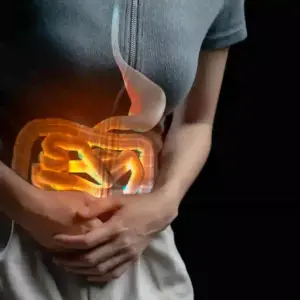
Gastroesophageal reflux disease (GERD)
Chronic acid reflux can erode the esophageal lining.
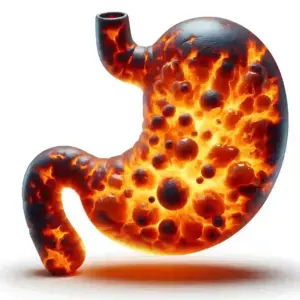
Gastritis
Inflammation of the stomach lining triggered by alcohol, stress, or certain medications.
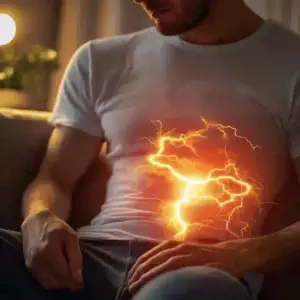
Liver disease (Cirrhosis)
Leads to swollen veins in the esophagus (varices) that can rupture.
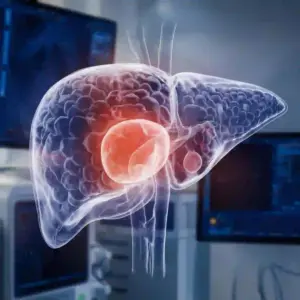
Diverticulosis and polyps
Small pouches or growths in the colon that can bleed.
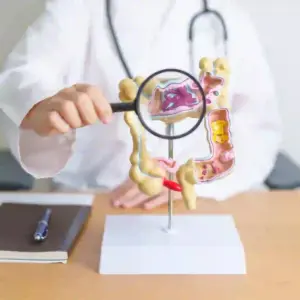
Hemorrhoids or anal fissures
Common causes of visible bleeding from the rectum.

Inflammatory bowel diseases
Such as Crohn’s disease and ulcerative colitis.
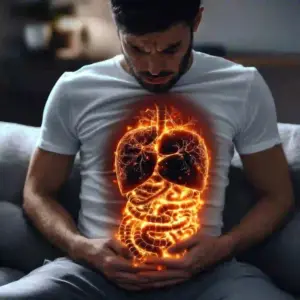
Blood-thinning medications
Drugs like aspirin, warfarin, or ibuprofen increase bleeding risk.
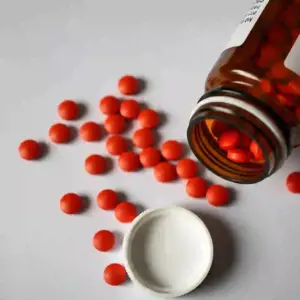
Smoking and alcohol
Damage the digestive lining and slow healing.

Gastrointestinal (GI) Bleeding
Diet and Nutrition
Prevention
Diagnosis
Key Services
Key Facilities
Proper diet supports healing after GI bleeding and prevents recurrence. The dietitians at VS Hospitals recommend easily digestible, non-irritating foods that soothe the digestive tract.
- Soft, Bland Diet: Include boiled vegetables, rice porridge, bananas, and oats to minimize irritation.
- Avoid Spicy and Oily Foods: These aggravate acid secretion and worsen ulcers.
- Stay Hydrated: Water, coconut water, and clear soups help maintain fluid balance.
- Iron-Rich Foods: Spinach, beetroot, pomegranate, and lentils help restore lost blood.
- Vitamin C Sources: Citrus fruits (in moderation) and guava help absorb iron efficiently.
- Avoid Alcohol and Caffeine: Both stimulate acid production and slow down healing.
- Eat Small, Frequent Meals: Reduces stomach load and acid production.
- High-Fiber Foods: Whole grains and fruits prevent constipation, reducing strain during bowel movements.
- Probiotic Foods: Yogurt and buttermilk restore gut bacteria and promote digestive healing.
- Cooked Over Raw Foods: Prevents bacterial infections that could worsen bleeding.
At VS Hospitals, patients receive individualized diet plans that promote gastrointestinal recovery while maintaining optimal nutrition.
Preventing GI bleeding is possible through lifestyle changes, medication awareness, and timely medical check-ups. The experts at VS Hospitals recommend the following measures:
- Limit Painkiller Use: Avoid self-medicating with NSAIDs; consult a doctor for alternatives.
- Control Acid Reflux: Follow dietary advice and take prescribed antacids when necessary.
- Moderate Alcohol Intake: Excessive drinking irritates the stomach lining.
- Quit Smoking: Smoking reduces blood flow to the stomach and delays healing.
- Manage Stress: Practice relaxation techniques like yoga or meditation.
- Regular Check-Ups: Periodic endoscopy or colonoscopy can detect ulcers, varices, or polyps early.
- Stay Hydrated: Promotes digestion and prevents constipation-related strain.
- Balanced Diet: A high-fiber, low-fat diet prevents many digestive issues.
- Treat H. pylori Promptly: Bacterial infections must be treated fully to avoid ulcer recurrence.
- Monitor Blood Levels: Anemia or chronic fatigue may indicate hidden bleeding.
At VS Hospitals, preventive care programs focus on education, diet management, and early intervention to maintain long-term digestive health.
Diagnosing GI bleeding accurately is crucial for effective treatment. The specialists at VS Hospitals use state-of-the-art diagnostic techniques to locate the exact source and cause of bleeding.
- Physical examination: Initial evaluation for vital signs, anemia, and dehydration.
- Endoscopy (Upper GI Endoscopy): A flexible tube with a camera is used to visualize the esophagus, stomach, and duodenum.
- Colonoscopy: Used to examine the colon and rectum for bleeding sources like ulcers or polyps.
- Capsule Endoscopy: A small pill-sized camera that captures images of the entire small intestine.
- CT Angiography: Detects active bleeding in blood vessels using imaging contrast.
- Stool Occult Blood Test: Identifies hidden blood in the stool for chronic or slow bleeding.
- Blood Tests: Measure hemoglobin levels, clotting function, and infection indicators.
At VS Hospitals, these diagnostic tools are performed by skilled gastroenterologists, ensuring precise detection and timely management of even the most complex GI bleeds.
VS Hospitals provides a full spectrum of services to manage and treat GI bleeding — from emergency stabilization to long-term care. The hospital’s multidisciplinary approach ensures patients receive seamless and effective treatment.
- Emergency Stabilization: Immediate IV fluids, blood transfusions, and oxygen therapy are provided to stabilize critically ill patients.
- Endoscopic Hemostasis: Advanced endoscopic techniques like clipping, cauterization, injection therapy, and argon plasma coagulation (APC) effectively control active bleeding.
- Targeted Medical Therapy: Proton pump inhibitors (PPIs), antibiotics for H. pylori, and medication adjustments help reduce acid and promote healing.
- Surgical & Interventional Options: Laparoscopic surgery, angiographic embolization, and variceal band ligation manage complex or recurrent bleeding sources.
- Anemia & Nutritional Management: Iron supplementation and dietary support aid in restoring hemoglobin and overall digestive strength.
- Long-Term Monitoring: Regular endoscopic evaluations and follow-ups ensure sustained recovery and prevent recurrence.
- Preventive & Lifestyle Care: Expert counseling on diet, medication safety, and stress management promotes long-term gastrointestinal health.
VS Hospitals is equipped with advanced facilities and expert teams to handle both emergency and chronic GI bleeding cases with precision and care.
- Modern Endoscopy & Colonoscopy Suites: High-definition systems for diagnosis and therapeutic intervention.
- Advanced Imaging & Radiology: CT, MRI, and angiography units for real-time localization of bleeding.
- Robotic & Laparoscopic Surgery Units: Enable minimally invasive surgical procedures with faster recovery.
- 24/7 Emergency Department: Immediate management for acute bleeding and critical cases.
- Intensive Care Units (ICU): Specialized monitoring for patients recovering from severe bleeding.
- Blood Bank & Transfusion Services: Ready supply for patients needing urgent blood replacement.
- Gastroenterology Laboratory: Comprehensive testing for infection, clotting, and hemoglobin levels.
- Nutrition & Rehabilitation Department: Provides customized dietary and recovery plans to strengthen digestive health.
Each facility is integrated under one roof to ensure quick diagnosis, advanced treatment, and complete patient safety.
Top Medical Facilities at Our Multispeciality Hospital – Here’s What Makes Us Different!
Ready to Begin Your Gastrointestinal (GI) Bleeding Care Journey?
Learn More About Gastrointestinal (GI) Bleeding Care
Frequently Asked Questions
The most common causes include peptic ulcers, gastritis, hemorrhoids, colon polyps, and esophageal varices. Certain medications and liver diseases also increase the risk. VS Hospitals uses endoscopic and imaging tools to identify the exact source and provide personalized treatment, ensuring faster recovery and prevention of recurrent bleeding.
Treatment depends on the cause and severity. VS Hospitals offers emergency stabilization, endoscopic therapy, medication management, and minimally invasive surgery if required. Patients are also given nutritional counseling and follow-ups to prevent recurrence. The hospital’s advanced technology ensures effective and safe treatment with high recovery success rates.
If you experience vomiting blood, black stools, dizziness, or severe fatigue, seek medical attention immediately. VS Hospitals provides 24/7 emergency care with experienced gastroenterologists. Early intervention prevents complications like shock, anemia, or organ failure and ensures complete recovery through expert medical and surgical management.
